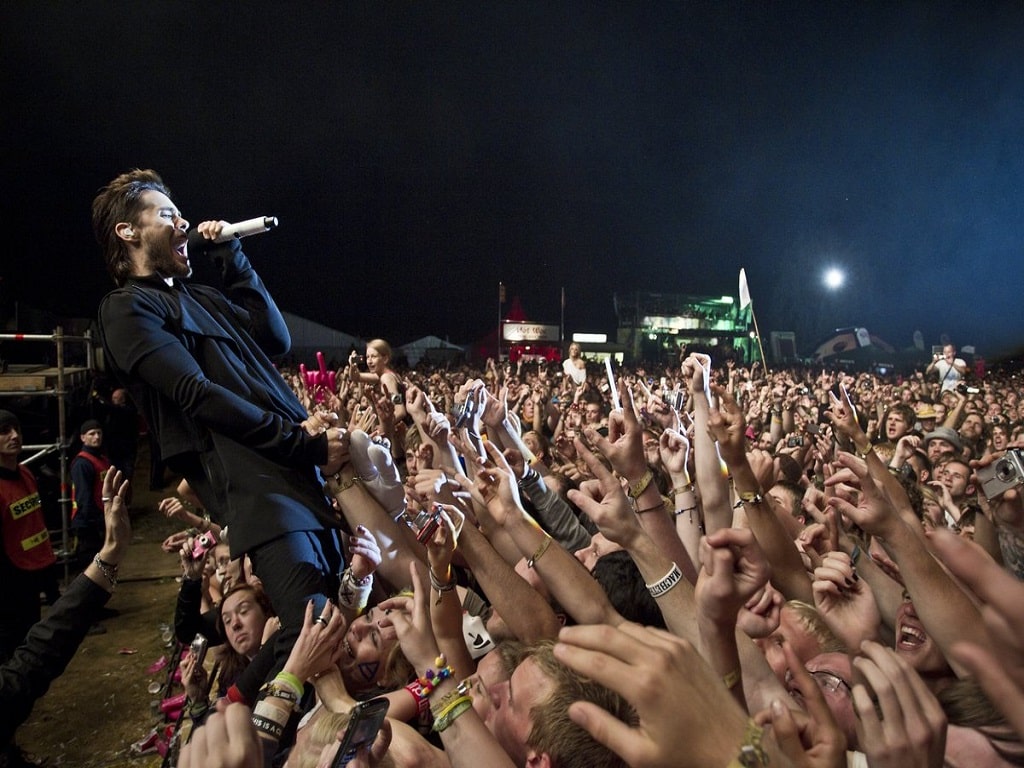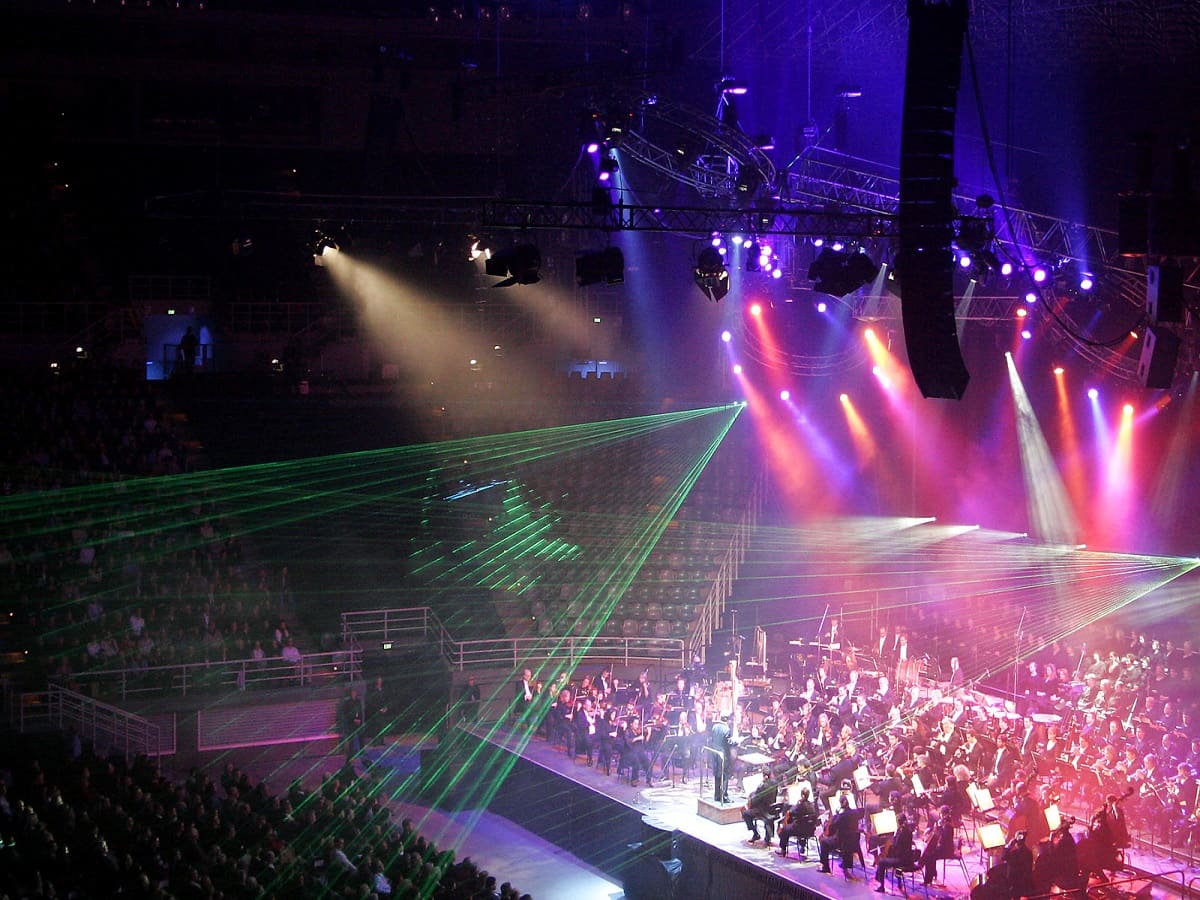Depending on the type of performer, a show can last between 1 and 3 hours. Concerts by well-known artists with expensive ticket prices typically last between 90 minutes and three hours, whereas concerts by lesser-known artists typically last between 45 minutes and 90 minutes. It is possible for a concert to be as short as 30 minutes or as long as 3 hours, but this is uncommon, and such events are typically referred to as flash performances or festivals.
When and where will the concert take place?
These are the two logistical considerations that typically impose quite strict time constraints on a concert. If a show begins at 8 p.m. on a weekday at a low-key venue in a location with a noise ordinance that goes into effect at, say, 11 p.m., then it is highly likely that the event will conclude within three hours. Because of the severity of the penalties for violating legal regulations, venues adhere to them with great precision.
On the other hand, if it’s a larger concert in a more insulated venue on a weekend night, there’s a good chance that the concert will last well into the night. Bruce Springsteen and the Grateful Dead, for instance, have performed multiple concerts that lasted well over four hours.
The Set List
The setlist is typically regarded as a performance blueprint. Some bands strictly adhere to a setlist, ensuring that it remains constant and unchanged. This occurs frequently for short tours or festivals when the band has a limited number of dates to play and desires to play the same music every night. But many bands are also notorious for playing the same setlist repeatedly (ex: Korn, Sum 41). At most, a few songs will be replaced during the tour.
A setlist may also be influenced by the nature of a tour. When promoting a new album, an artist may choose to only perform songs from that album. Some bands have been known to perform a single album in its entirety, in its running order. When an artist is touring to promote a new album, songs from this album will comprise the majority of the setlist.
If you are interested in learning more, we have a setlist profile on the website (donut chart on artist pages). Nevertheless, it is not uncommon for an artist to alter the setlist slightly during a tour. This is intended to add variety. In some cases, adjustments are made to accommodate the fans. Before a concert tour stop, it is increasingly common for fans to be polled via websites and social media and asked which songs they would like to hear.
The Shortest and Longest Concerts Ever
Briefer Concerts
For a lesser-known artist or group, shorter concerts may be as brief as 20 minutes. Or up to an hour for a person who is well-known but perhaps not yet a legend. The amount of music they have released and their level of popularity will determine how long they can play before the audience loses interest. These shorter sets are also frequently combined. For example, a well-known artist who plans to perform for approximately one hour may ask a lesser-known artist to open for them. The opener may play for as little as 20 minutes or as long as 45 minutes. Depending on the number of groups performing, the length of each group’s performance, and the length of the intermissions, the concert could last up to three hours.
Consider the number of performing groups when estimating the time required for stage rentals.
Longest concerts:

27 hours of Chile Gonzales on May 16, 2009, at the Cine 13 Theater in Paris. The Canadian pianist entertained his audience for approximately 27 hours and 44 seconds. He performed 300 songs and told stories throughout the concert. Did he or the audience ever fall asleep during his performance?
Live Aid on 13 July 1985 lasted sixteen hours. Live Aid contains 75 live performances. After all of the bands had performed, the entire concert lasted 16 hours. The event was organized to aid starving children in Africa.
Grateful Dead Concert at the Winterland Ballroom from December 31, 1978, to January 1, 1979 – 6 hours The Grateful Dead performed 36 songs, the majority of which are not short. This performance lasted roughly six hours.
What causes a concert to run longer than anticipated?
Unexpected events frequently cause concerts to last longer than anticipated. A positive factor that can cause a concert to last longer than anticipated is an encore performance, in which the audience encourages the performer to perform one or more songs that were not on the official program. If a performer or member of the band fails to arrive on time, the concert may also begin late, causing it to run longer than anticipated.
Numerous unforeseen circumstances can cause a concert to run longer than planned, but the venue frequently encourages this to increase revenue and audience participation. The majority of outdoor concerts are prohibited from continuing past 11 p.m. due to location-specific noise ordinance laws.
Reasons Why a Concert Lasts Long
One way to ruin a fun concert experience for everyone is to have a concert run on too long. Although there are numerous reasons for concerts to occur over time, there are few excuses for them to occur. For instance, you could attend a concert by a performer who spent the previous evening partying in order to take the stage on time.
That is not to say that there are no valid reasons for a concert to last longer than it should. Here are some common explanations for why the majority of concerts last so long.
- The headlining or supporting act is late due to traffic congestion.
- The performing artist is busy making large demands in their dressing room.
- The headlining act is focused on something else entirely and isn’t ready to perform.
- The performing act feels no obligation to begin on time.
There is a lack of trust between the performing act, the venue owners, and the patrons. The performing act is often waiting for their patrons to show up while the patrons are waiting for the performers to play. This ends up in a lose-lose situation in which the showtime starts later than anticipated.
What is the musical genre?
Certain genres and types of concerts tend to be more rigid than others. Classical concerts; with a traditional orchestra, choir, and such tend to follow a pretty standard format of 1 – 1.5 hour first part, ~15-minute intermission, and 5 – 1 hour second part.
More modern music, rock concerts especially, tend to be more “loose” and casual. You might see a random improvised and/or extended ~10 minute guitar or drum solo on an otherwise three-minute song. Or you might see some fan interaction and inclusion.
How Long Does Each Set Last?
Many concerts will include an intermission in the middle of the production to give performers time to take a break and set changes. This also gives the audience members a chance to stretch their legs, use the bathroom, and buy food or merchandise. Intermissions aren’t that long and usually last from 10-25 minutes, depending on the length of the entire concert.
Are there multiple groups or acts in the lineup?
A concert will often feature another band with an opening act before the main band, called the headliner, starts to play. An opening act will usually last around 30-45 minutes, possibly longer in some cases. Opening acts might detract time from the headliner, but almost certainly never in a perfect 1:1 ratio, else people would be understandably upset that they’re not totally getting to see who they paid for play.
A concert with an opening act will usually last at least 2-3 hours. It’s possible that a headliner has more than one opening act, but this usually treads into a more multi-form style where there isn’t really a “main” performer, so the concert time might not be much or any longer.
Some long-form concerts, often called “festivals,” will feature several to tens of bands, with multiple acts playing at the same time in some cases, and are meant to be a full-day event. Many festivals span a few to several days, for example, the infamous 9-day Burning Man event.
Multiple Set Events
Many concerts involve more than just an opener and a headliner. For instance, sometimes a radio station or a festival will put together an all-evening or all-day event with a handful or more groups performing. If you’re planning such an event, you may need to think about multiple concert stage rentals, or renting your own stage if you’re participating in a festival.
Set the Stage With The Wright Group
No matter how long your event or concert will be, The Wright Group has everything from portable stage rentals to seating, tents, and anything else you might need to make the magic happen. Contact us today, and we’ll make sure your event has everything it needs from beginning to end.
Conclusion
If you are going to a concert, it’s important to know how long they last so that you can plan appropriately. How long do concerts last? Concerts typically last from 90 minutes to 2 hours. There is also usually a 20-minute intermission in the middle of the concert. The length of a concert depends on the popularity of the band or artist, the number of performers in the program, and the type of venue.
90 minutes to 2 hours is the average length of all types of concerts, including pop, rock, rap, EDM, jazz, classical, etc. Festival concerts tend to last longer.
You now know what to expect for any upcoming concert you may be attending or organizing. In the end, if the fans love the music, they will want to go as long as possible.
Frequently Asked Questions (FAQs) about how long are concerts?
How long is a concert usually?
Popular acts that put on shows for high ticket prices usually have concerts that last between 90 minutes and 3 hours, while smaller concerts with lesser-known acts more often fall between 45 minutes and 90 minutes.
What is the longest concert ever?
The longest concert by multiple artists is 437 hr 54 min 40 sec, and was achieved by, Kevin Ker, Shawn Armstrong and Epidemic Music Group (all Canada) at the Earl of Whitchurch, Ontario, Canada from 17 March to 5 April 2017.
What do people wear to concerts?
When you’re figuring out what to wear to a concert, shoes are one of the most crucial elements. Sturdy styles like white sneakers and lug-sole boots are often the most comfortable and protective for festivals and outdoor shows. For a more laidback daytime event, you can easily pull off an espadrille or sporty sandal.
What time do most concerts end?
Gigs usually last between 2 and 3 hours, it depends how many supports there are and how quick at setting up they are in between. Most gigs with doors of 6.30 start between 7 and 8 and finish between 10 and 11.
